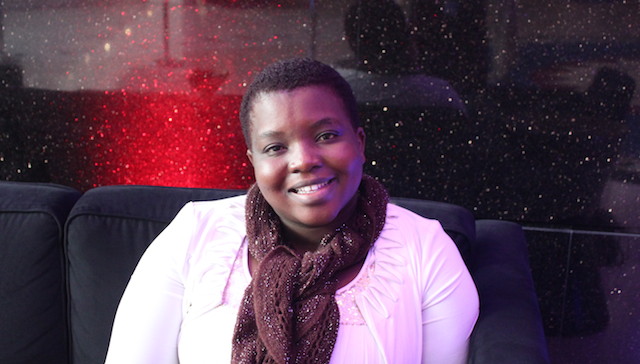It is a well-known fact that economic emancipation in modern society, be it on an individual or mass level, relies heavily on innovation and technological advancement. Equally important is the inclusion and active participation of women in the Science, Technology, Engineering and Math (STEM) fields – both in education and vocation – in order to truly bring a change.
While statistics are surprisingly dismal for even developed countries like the US and UK, where the number of women in STEM fields have declined, things are headed in the right direction as far developing countries are concerned. Bringing Africa into the equation, one of the biggest challenges in the 21st century is how to transform and develop a densely populated region with a low literacy rate, extreme poverty coupled with inequitable societal systems and hierarchies.
Although the African continent is facing tough challenges stemming primarily from poverty, with most of Sub-Saharan Africa being in the World Bank’s lowest income category with a less than $765 Gross National Income (GNI) per person per year, mobile technology can still prove to be its silver lining. Combining this with integrating women into a skilled workforce is probably the most viable solution for economic development. That said, radical changes would, in fact, be less than possible until African women are able to develop skills and knowhow in STEM areas.
There are a number of organizations that are working to that effect. Techwomen Zimbabwe is one such entity striving to empower women and girls in the country by offering training programs such as the Technovation Challenge to develop tech skills among girls aged between 10 and 20 years.
Spearheaded by Rumbidzai Mlambo and Aretha Mare, the initiative strives to develop “An empowered, motivated and successful woman in STEM occupying at least 50 % representation in all STEM professions.”
Bringing Africa into the equation, one of the biggest challenges in the 21st century is how to transform and develop a densely populated region with a low literacy rate, extreme poverty coupled with inequitable societal systems and hierarchies.
Talking about the initiative, Rumbidzai Mlambo says, “It is primarily an international mobile application development program for women and girls aged 10 to 20, which started last year in January. Through this program, girls had the opportunity to learn how to build and develop applications in a period of three to four months.” She adds further, “The response from the girls has been amazing and very encouraging for us since it is a non-profit initiative.”
 Acknowledging the critical role of such campaigns and programs, Mlambo opines that changing Africa’s status quo as far as economic development is concerned has more to do with communities than government policies. “I think there is an overemphasis on governments as far as educational policies (STEM or otherwise) are concerned. I think it is time for us, as a community, to take action. Governments come and go, resulting in shift in policies. Yes, we do need government support – but in terms of policies and programs. It should fall beyond the government’s domain so that there is a consistency and continuity even if the government goes. Policies based on politics tend to shift and change, but community or business-based policies do not.”
Acknowledging the critical role of such campaigns and programs, Mlambo opines that changing Africa’s status quo as far as economic development is concerned has more to do with communities than government policies. “I think there is an overemphasis on governments as far as educational policies (STEM or otherwise) are concerned. I think it is time for us, as a community, to take action. Governments come and go, resulting in shift in policies. Yes, we do need government support – but in terms of policies and programs. It should fall beyond the government’s domain so that there is a consistency and continuity even if the government goes. Policies based on politics tend to shift and change, but community or business-based policies do not.”
Striving to increase women’s participation in STEM sectors by exposing young girls to innovative training programs, the organization is actively involved in stimulating events such as Women in STEM monthly networking events, Women in STEM Mentors Forum, mentors’ workshops, etc.
“I truly believe more women in STEM are needed. Young girls look up to real role models who are a motivating factor for them. For us, the only way to succeed is to tap the limitless potential of the female gender,” says Mlambo.
Techwoman Zimbabwe is just a start. We want to build movers and shakers who can disrupt the current status quo. We want to show the world the potential of our girls. And the real transformation of millions of lives, and showcase women at the forefront.
Talking about Techwomen Zimbabwe and the different initiatives under the flagship, she opines, “If we really want to make a difference in the lives of ‘common’ women and, consequently, the community, our organizations have to become ‘proof providers’. Training programs and initiatives should be activated in all seriousness. One thing I have witnessed is that whenever such initiatives are started, we are not too serious about it. Many times, parents actually see that and rightly presume that it is just another program. It is our responsibility to make sure that there is some kind of reinforcement or motivation that will persuade parents to send their children. We need to make the parents see that their children, particularly the girls, are getting something constructive out of it and are creating an impact on the community and, consequently, the economy. By being ‘proof providers’, I think more parents will be willing to let their girls come.”
Looking into the future, Mlambo is vocal about her vision, “Techwoman Zimbabwe is just a start. We want to build movers and shakers who can disrupt the current status quo. We want to show the world the potential of our girls. And the real transformation of millions of lives, and showcase women at the forefront.”











